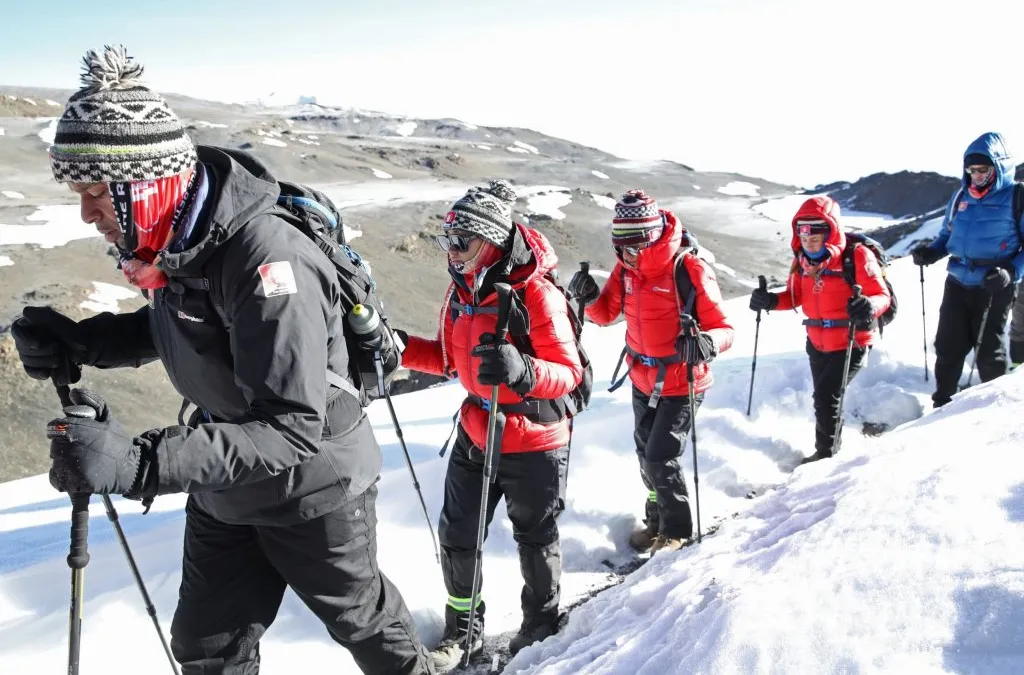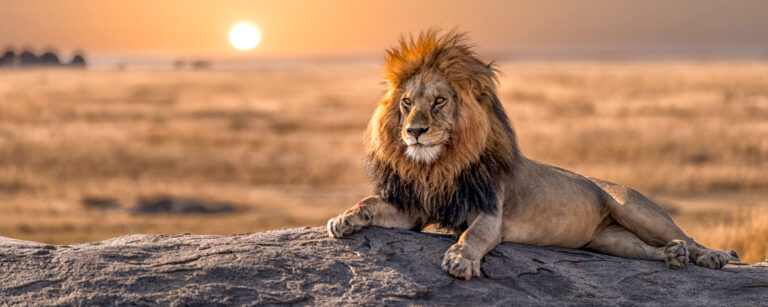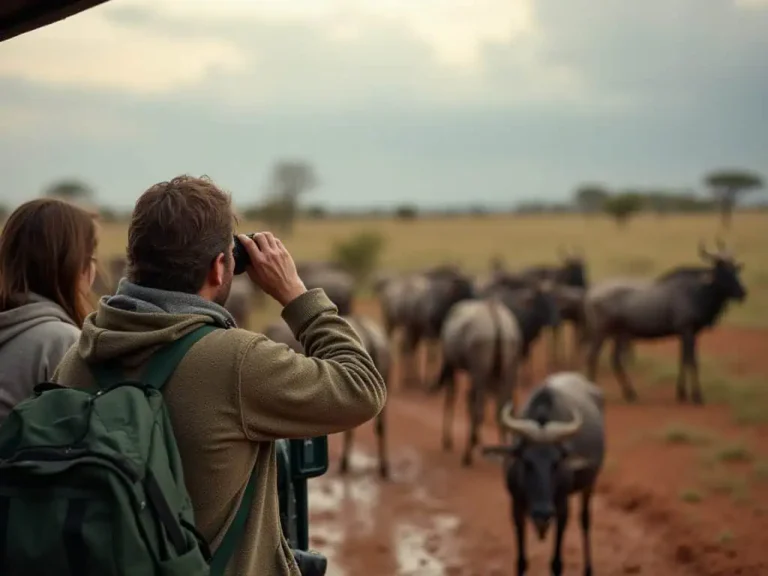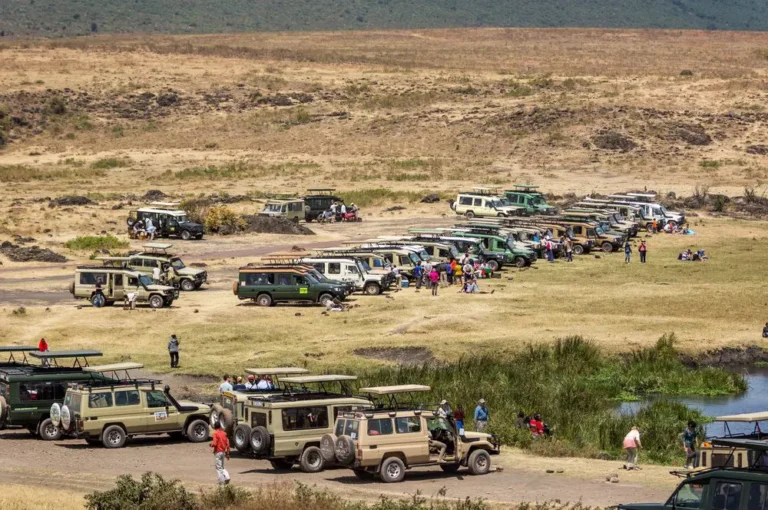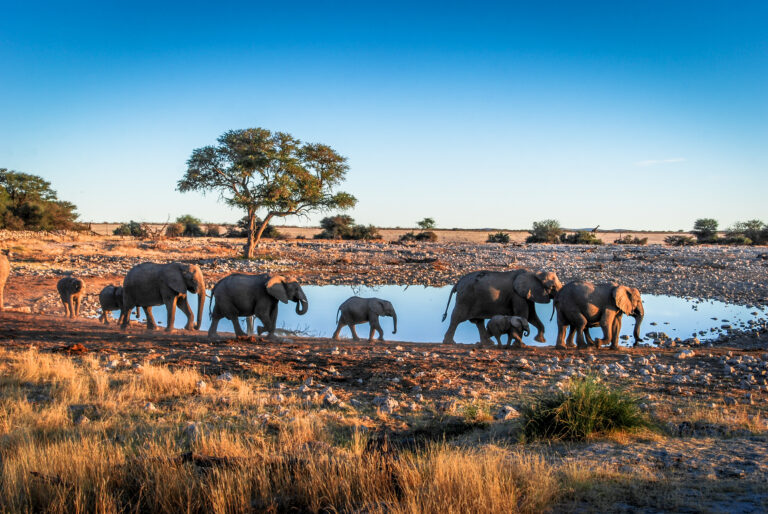The Ngorongoro Conservation Area spans from Serengeti National Park in the north, to the Great Rift Valley in the east. In total, the conservation area covers more than 8,000 km² (3,200 sq. miles). It consists of the Ngorongoro Crater, Ndutu, Olduvai Gorge, Empakaai, Olmoti Crater and Oldonyo Lengai Mountain. The mix of forests, valleys, savannah, craters, lakes and swamps is home for a wide range of animals.
The famous Ngorongoro Crater is the main feature of this area. Two to three million years ago the large volcano exploded and collapsed on itself. As a result the crater formed which then created a unique ecosystem with a wide variety of vegetation.
Today the crater is home to the highest concentration of wildlife in Africa. It is home to zebras, buffaloes, warthogs, baboons, elephants, flamingos, ostriches and hippos. You can find a high population of predators, including lions, hyenas, jackals, cheetahs and leopards. And a big attraction of the Ngorongoro Crater are of course the Big Five – buffalo, elephant, leopard, lion, rhino. You can see them all in this 20 kilometres (12,5 miles) wide and 600 metres (2,000 feet) deep crater. Enjoy the variety of animals and beautiful colours of the landscapes. The views from the crater rim over the crater floor are incredible. Because of its natural beauty, the crater is chosen as one of Africa’s Seven Natural Wonders.
During your safari it is also possible to visit the Maasai tribe. They are allowed to let their livestock graze in this area. If you really want to learn more about the lifestyle and rituals of this fascinating tribe, we recommend you to book a Maasai Tour.
You like to incorporate Ngorongoro Crater into your itinerary? Check our Tanzania safaris for inspiration or contact us for personal advice

